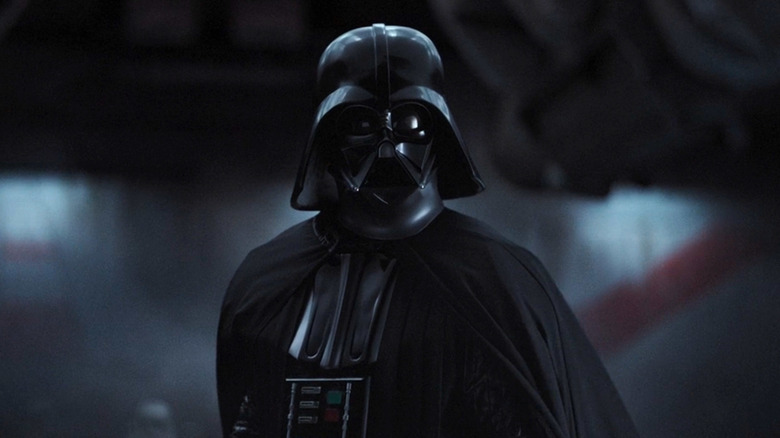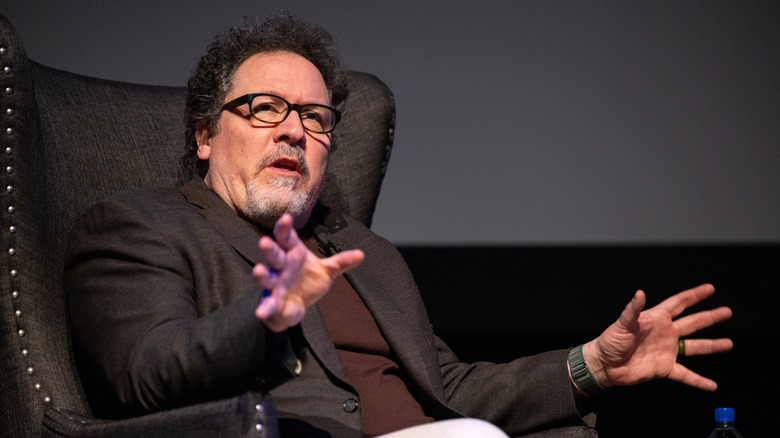Lucasfilm Is Actively Working Out Star Wars' Post-Sequel Trilogy Future
In a strange turn of events, "Star Wars" exists primarily on TV these days. In 2019, Disney released "Star Wars: The Rise of Skywalker," concluding the ambitious sequel trilogy it had begun with "Star Wars: The Force Awakens" in 2015. Since then, the vast galaxy far, far away has been contained to the small screen with shows such as "The Mandalorian," "Obi-Wan Kenobi," and "Andor."
Among the most important architects of the "Star Wars" franchise in recent years has been director Jon Favreau. After helping launch Disney's other major franchise, the Marvel Cinematic Universe, with "Iron Man" and its first sequel, he later helped revitalize "Star Wars" with the creation of "The Mandalorian."
With the Pedro Pascal-starring Disney+ series, Favreau found a bona fide hit, and the show is now in its third season. The full-steam approach Disney has adopted when it comes to putting "Star Wars" on TV is likely the result of Favreau's success with Din Djarin and Grogu.
Given his position and the role he plays in shaping the future of "Star Wars," few are better situated to comment on what's next for the historic science-fiction series. In a recent interview, Favreau explained some of the considerations he and Lucasfilm have as they journey past the sequel trilogy.
For Jon Favreau, building the future of Star Wars is like studying history
In a press junket interview with Danish outlet Moovy TV as part of a promotional push for Season 3 of "The Mandalorian," Jon Favreau revealed some insight into Lucasfilm's ongoing process of expanding the franchise's story beyond the sequel trilogy of films, which culminated with 2019's "Star Wars: The Rise of Skywalker." According to Favreau, he and his collaborators view the sequel trilogy as a massive movie event, but it is a relatively small chapter in the overarching story of "Star Wars."
"It's a big thing on the screen," Favreau said, "and it's very eventful, but it is a relatively brief moment in history over the course of the thousands of years that 'Star Wars' takes place." While noting that plans for future "Star Wars" media are ongoing, Favreau made clear that there are some concrete points in the timeline around which things will be structured.
"What happens after [the sequel trilogy] is interesting, too," Favreau said, "and I know that there is some discussion and exploration going on about what happens after it, so I think there are certain markers we have."
When looking at the broader "Star Wars" timeline, there are precise moments that filmmakers and fans know well, but in between these events is, as Favreau puts it, "a lot of murkiness." Because of this, Favreau compares approaching "Star Wars" to studying history.
The history of the galaxy far, far away has indeed been expanded well beyond the few decades comprising the three cinematic trilogies, stretching back to ancient Sith and Jedi empires. It is possible that before "Star Wars" goes forward, it will explore the distant past.

